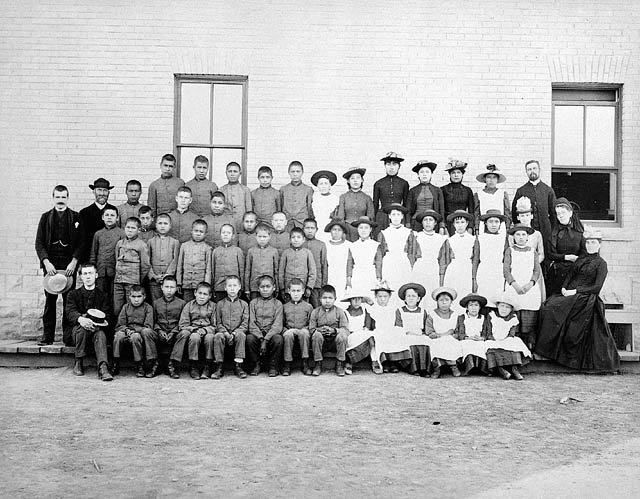Boris Johnson recently apologized for attending a party at No 10 Downing Street in March 2020, just after a national lockdown had been ordered. His apology has been met with general outrage and a call for his resignation. Individuals respecting the lockdown measures couldn’t see their loved ones on their deathbeds, attend funerals, celebrate weddings, and more. For instance, the queen of England had to attend her own husband’s, the Duke of Edinburgh’s, funeral in relative isolation. As of the latest, the consensus is not a matter of whether Boris Johnson will resign, but when and how he will resign.
Unsurprisingly, most parties accuse Boris of delivering a weak apology. Worse, some accuse him of failing to apologize altogether. This raises the question, “What does it take to make an apology?” Boris Johnson’s apology provides a good case study of what does and does not qualify as an apology. In what follows, I will outline three conditions for making an apology and contrast this with the related concepts of excuse, justification, and explanation. Given the notion of apology I put forth, Boris Johnson fails to make a successful apology.
Let us stipulate that an apology consists of three things: the individual who apologizes must (i) take ownership of the action and the damaging effects, (ii) regard the action as bad, and (iii) be open to making amends or reconciling in some fashion. Consider a trivial case of apology (modeled on a favorite poem of mine). Juan and Sarah are work colleagues. Juan always places his snack of choice, some tangerines, in the work cooler. As it happens, one day Sarah eats Juan’s tangerines. Juan sees the tangerine peels in Sarah’s bin, so naturally addresses the issue. Upon being confronted, Sarah apologizes. She says, “I’m sorry, Juan. Those were your tangerines, and I ate them. I don’t want to take your food and treat you that way.”
While somewhat trivial, notice a couple of things about this scenario. First, Sarah owns up to the action. She doesn’t deny that she is the tangerine-eating-culprit — she takes responsibility for the action of eating Juan’s tangerines. Particularly, she takes responsibility for a wrong action and the effects of that wrong action. Next, Sarah is open to making amends. That is, she apologizes for the sake of reconciling. If this is not clear, simply consider the opposite: Sarah says, “I apologize,” and turns around in a huff for having been confronted. Like children on a playground who only verbally apologize, this would seem to only be half an apology (or no apology at all!). So, it seems like being open to amends is necessary for an apology. Of course, even if Sarah does successfully apologize, Juan can still refuse the apology. But this does not mean that Sarah has failed to apologize. Rather, it means that reconciliation has not occurred.
So, let us consider these three conditions as necessary and sufficient for an apology. You need them all for an apology to happen; and when you have them all, an apology happens.
Now, apologies are not usually as clean-cut as in the above example. Apologies are usually muddled with justifications and excuses. Imagine the same scenario where Sarah has eaten Juan’s tangerines. Excuses are frequent companions to apologies. Sarah could reply: “Oh goodness, I had no clue those were your tangerines in the cooler — sorry I ate them!” Excuses aim to deflect responsibility for the action in question. Sure, Sarah ate the tangerines. But she didn’t knowingly eat Juan’s tangerines from the cooler. That’s not the type of action that she is willing to own up to. Thus, when present, the excuse deflates the apology. Sometimes, excuses simply replace the apology. Sarah maintains, legitimately or not, that she should not and even cannot be held responsible for the action in question. When an excuse accompanies an apology, it at least deflates it, for it calls into question the first condition of taking responsibility for the action in question.
Justifications are also frequent companions or alternatives to apologies. Sarah could try to justify her action when Juan confronts her by saying, “Yeah, I ate it. But it wasn’t so bad after all — I was starving! Sorry, Juan.” Where excuses deny responsibility for the action in question, justification takes responsibility for it. Moreover, the person who offers a justification disowns the fact that the action was bad and thus deflects the blame. Perhaps the justification is legitimate, perhaps not.
Illegitimate justifications, as we know all too well, are a common way to deflect blame. When an illegitimate justification is present, it defeats the apology. The person who says ‘sorry’ at this point has simply not taken responsibility for the wrongness of the action and the bad effects.
Now, we don’t want to conflate justifications with explanations. To see the difference, imagine that Sarah says, “Sorry I ate your tangerines. I was hungry and not thinking of you — I regret doing that.” Similar to a justification, the explanation serves to provide context. Unlike a justification, the explanation does not seek to deflect blame. Explanation is a way of making amends and helping the offended person understand. The explanation aligns with the purpose of the apology, to take responsibility and make amends of some sort. When done correctly, explanations can go a long way in making an apology and the aspired reconciliation successful.
How does this help us analyze Boris Johnson’s apology? The presence of justifications or excuses calls the apology into question. Indeed, illegitimate justifications or excuses defeat the apology. Turning to his statement, the Prime Minister repeatedly and directly stated “I apologize.” He made note of his regret at the damage caused by his actions. He ended by encouraging the investigation, indicating his openness towards making another statement. We might be charitable and presume this means he is open to making amends. These all meet the conditions of an apology. So far, so good.
When taken as a whole, however, he made both excuses and justifications. Consider one of his excuses: he “believed implicitly that this was a work event.” Really? This classifies as an excuse. If we were to liberally elaborate, the above statement amounts to the following: “you are saying I attended a party and could blame me if this was the case. But that was not what I was doing! I attended a meeting. You can’t hold me responsible and blame me for that action.”
Additionally, the Prime Minister made a justification. He claimed it was “technically legal.” This classifies as a justification. Whether it was a party or work event, it was legal and he is not therefore blameworthy. In the justification, he takes responsibility but denies the action was bad.
I won’t get into the details of whether Boris Johnson offered any legitimate excuses or justifications. Neither have I commented on whether leaders have different kinds of responsibilities, or simply heightened responsibilities for the citizens they serve. But, as is clear from the tangerine-theft, the presence of any excuses and justifications at least deflates and calls the apology into question. And this is no different with Boris.



